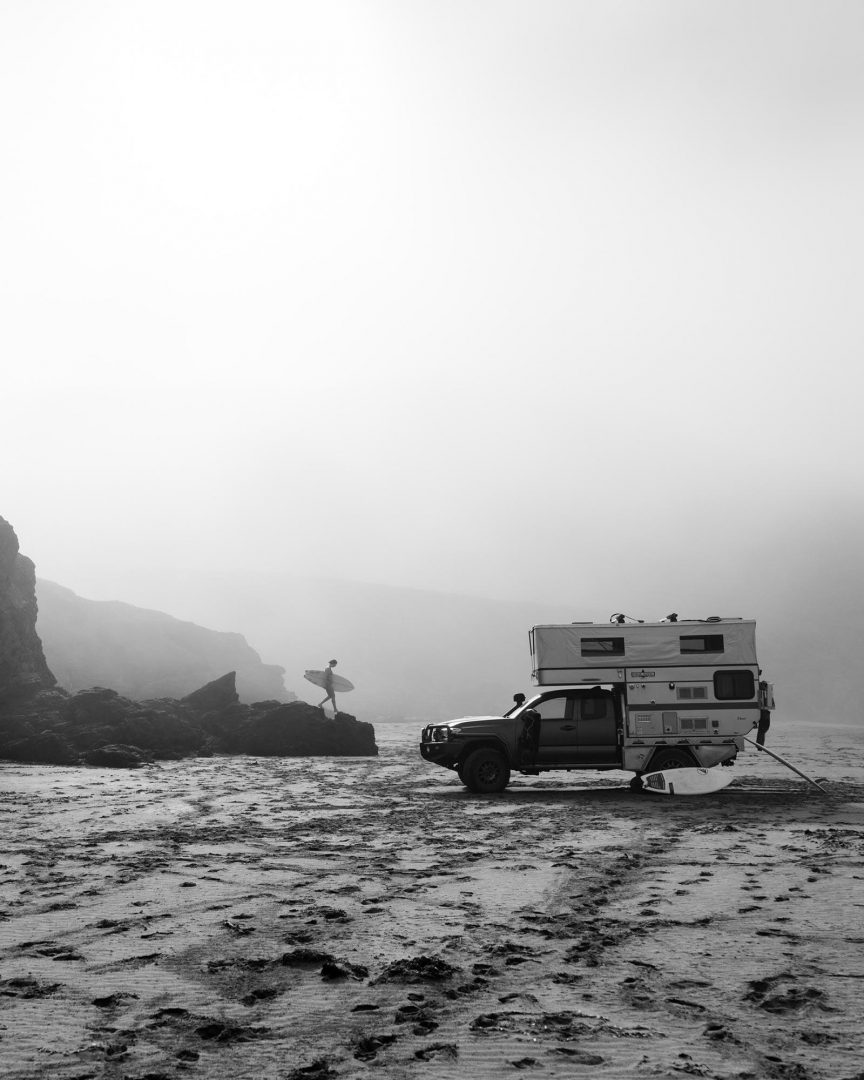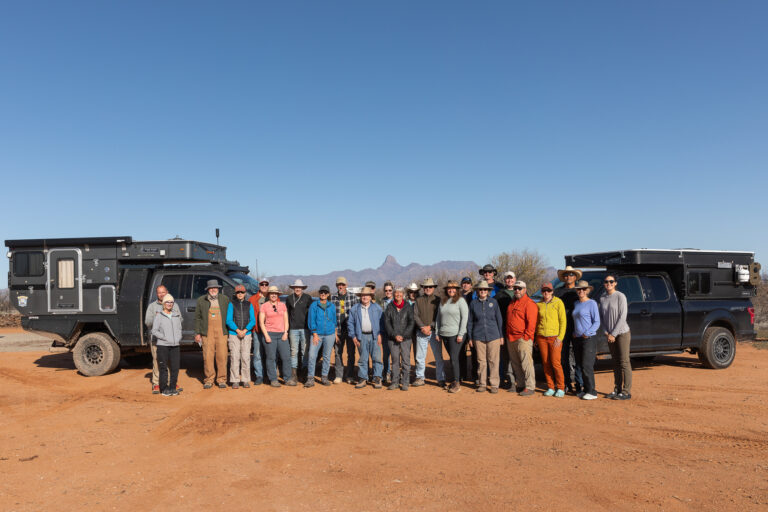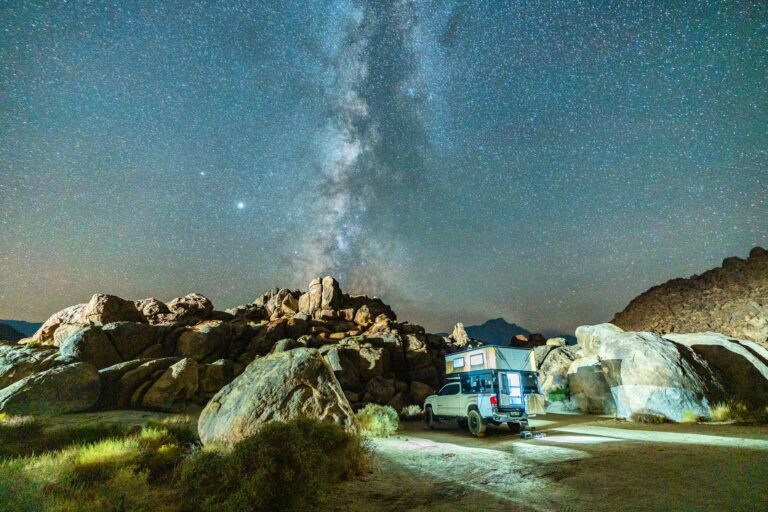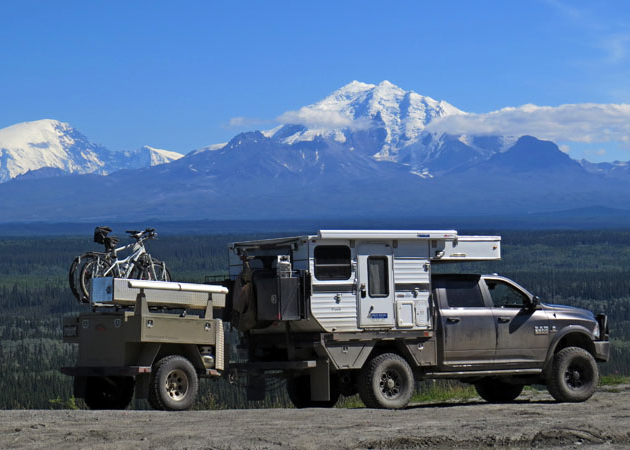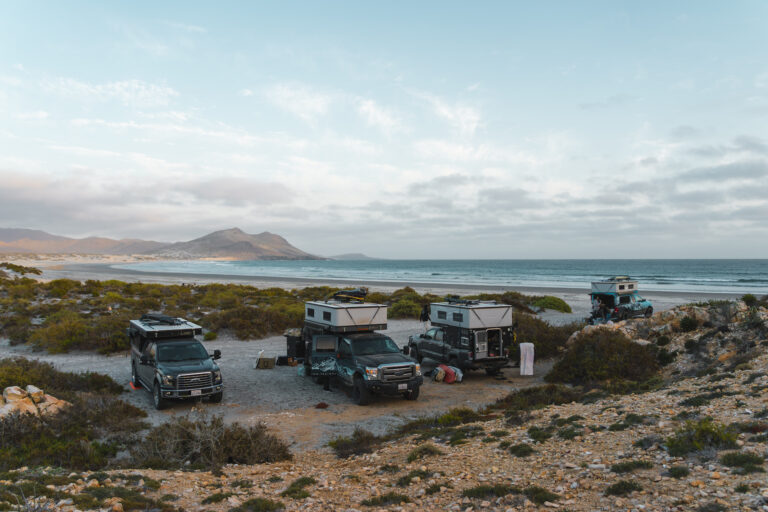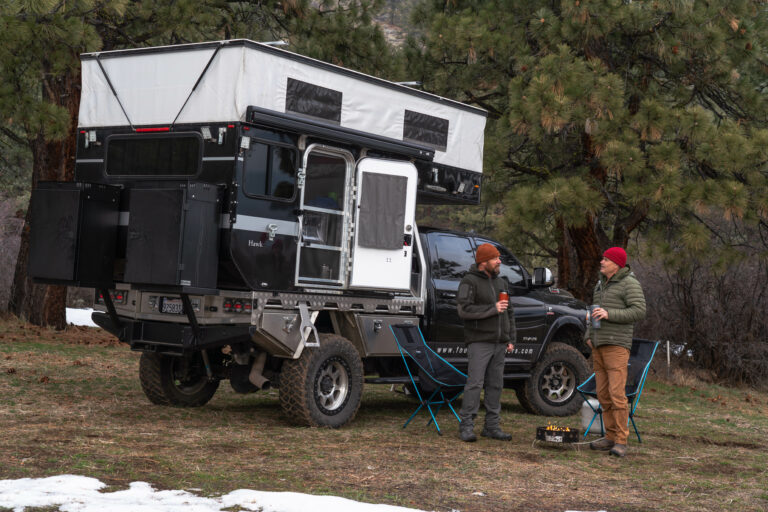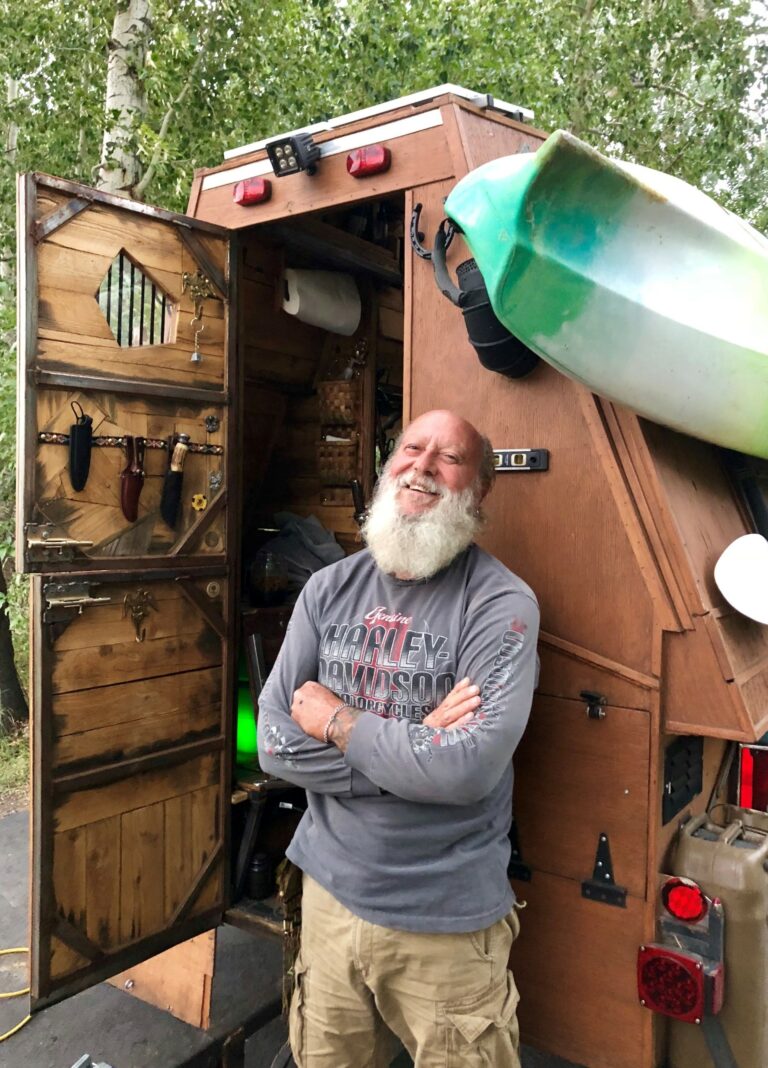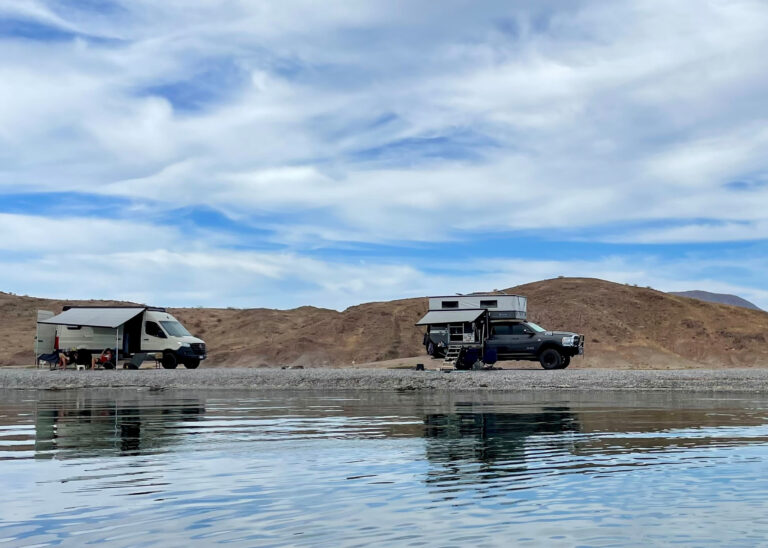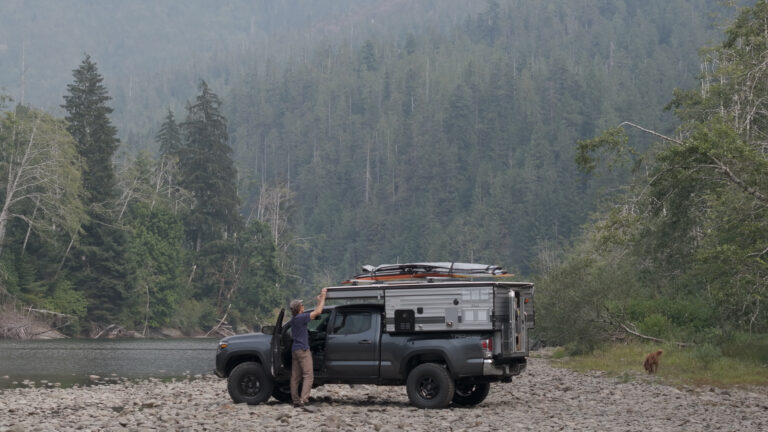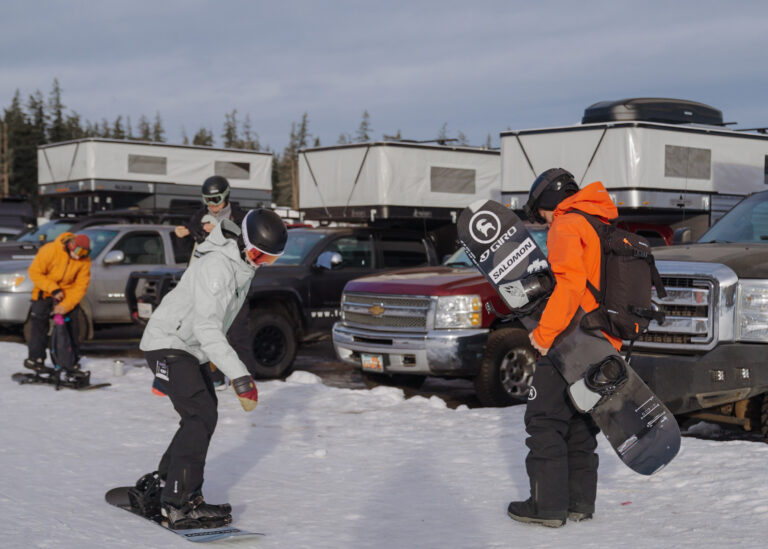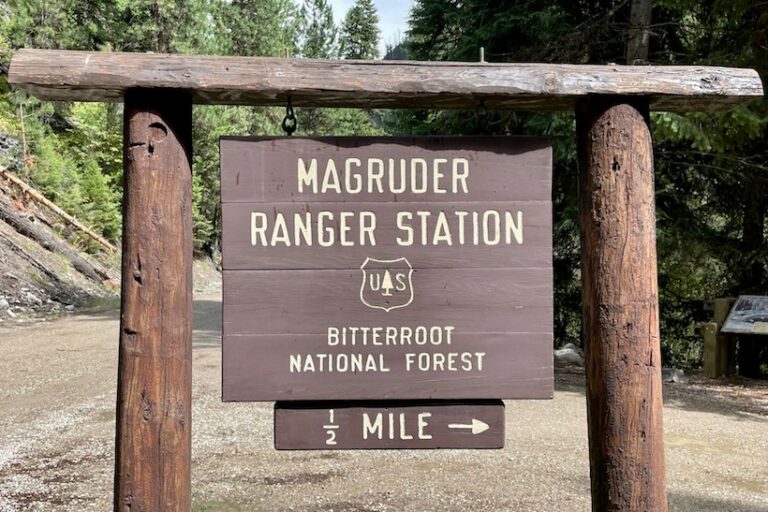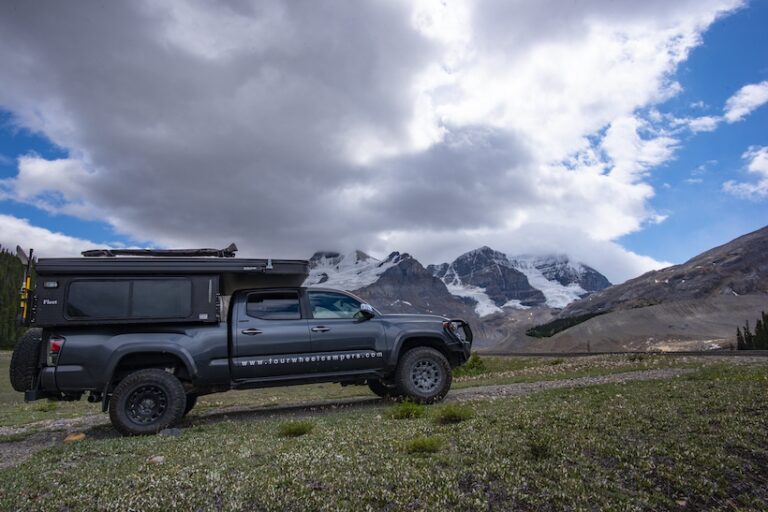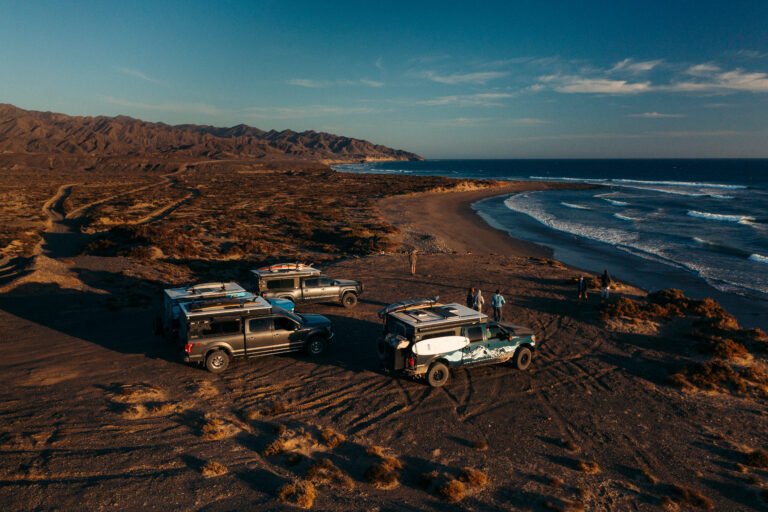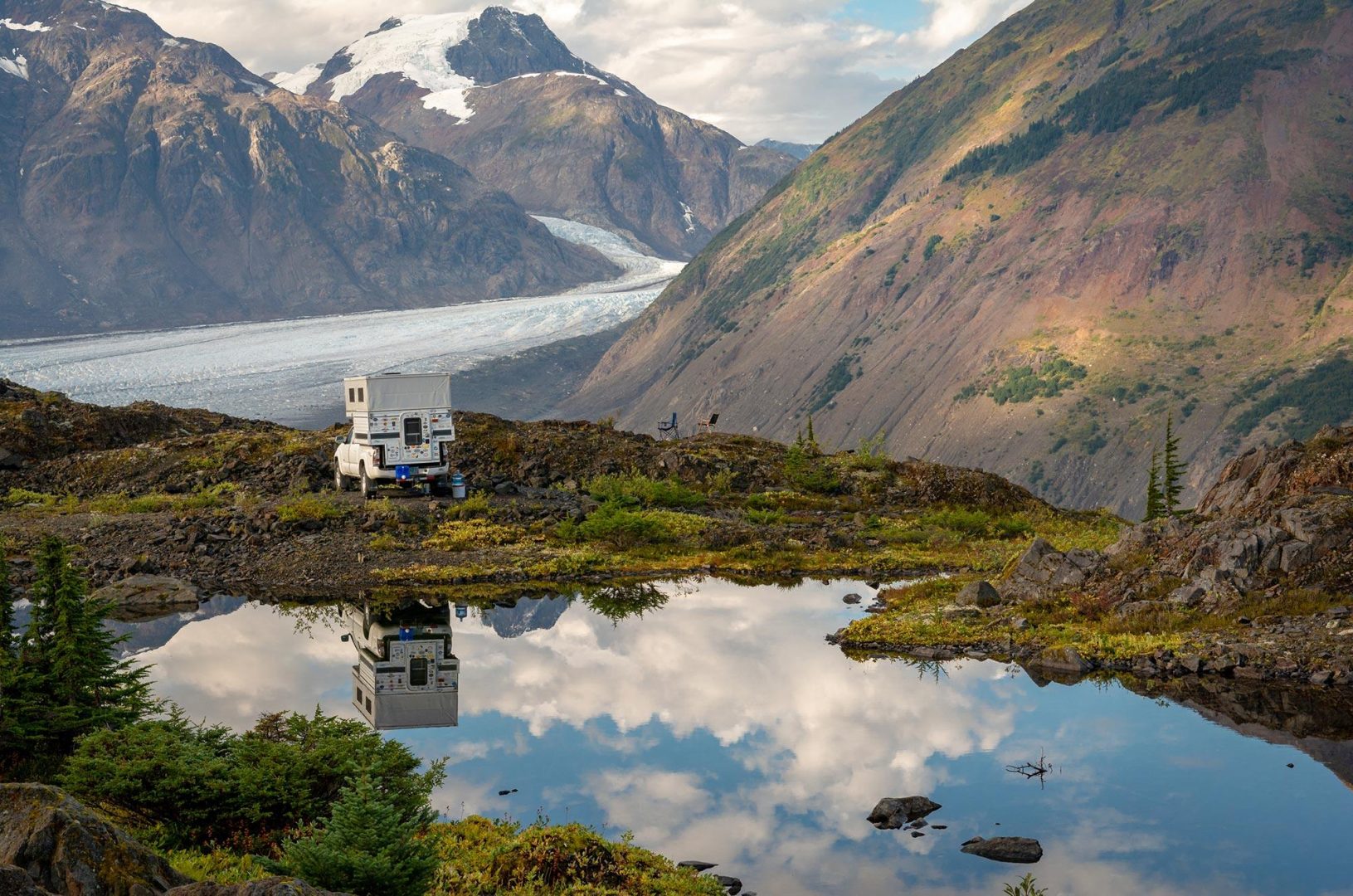
How to Stay Safe When Camping Alone

Camping alone is one of the greatest adventures. For many, it allows time to reflect, grow, and slow down in a world that always seems to be going a mile a minute. Whether car camping with a tent or heading out with your Four Wheel Camper alone for the first time, we’ve helped compile a list to ensure your trip is both safe & successful.
1. Text Someone Your Locations & Upcoming Plans
One of the golden rules of safe solo traveling and camping is to always let someone know where you are and where you’re going. This can include sharing your complete trip itinerary with GPS coordinates of each planned camping spot. If you are unsure if you will be in service at your campsite, communicate that as well.
2. Check Service Areas
Camping & boondocking locations are often in remote locations and out-of-service. When it comes to feeling comfortable & staying safe while camping alone, many feel better in an area where they can stay connected to friends and family. Numerous helpful camping apps, such as Sekr, outline camping areas and provide details such as the number of campsites, fees, and cell service reports.
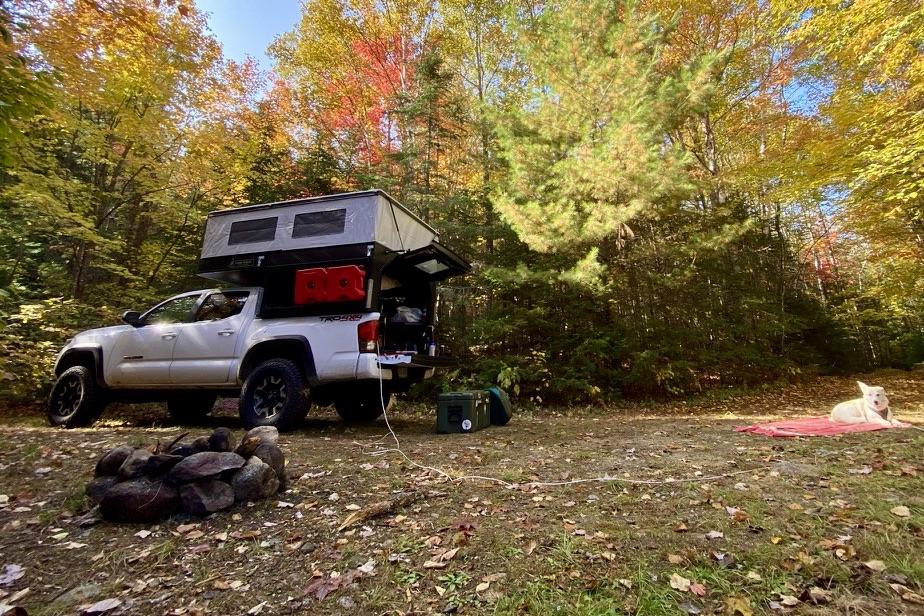
3. Don’t Share Your Location Online
Although you always want to share your location with a close friend or family member, never share your current location online. Tagging locations is common on social channels, such as Instagram, but it’s best to leave those details out until after you’ve left.
4. Pack Solo Supplies
When camping solo, you must ensure you have all the supplies needed in an emergency. When car camping, it’s sometimes better to overpack than under-pack, as
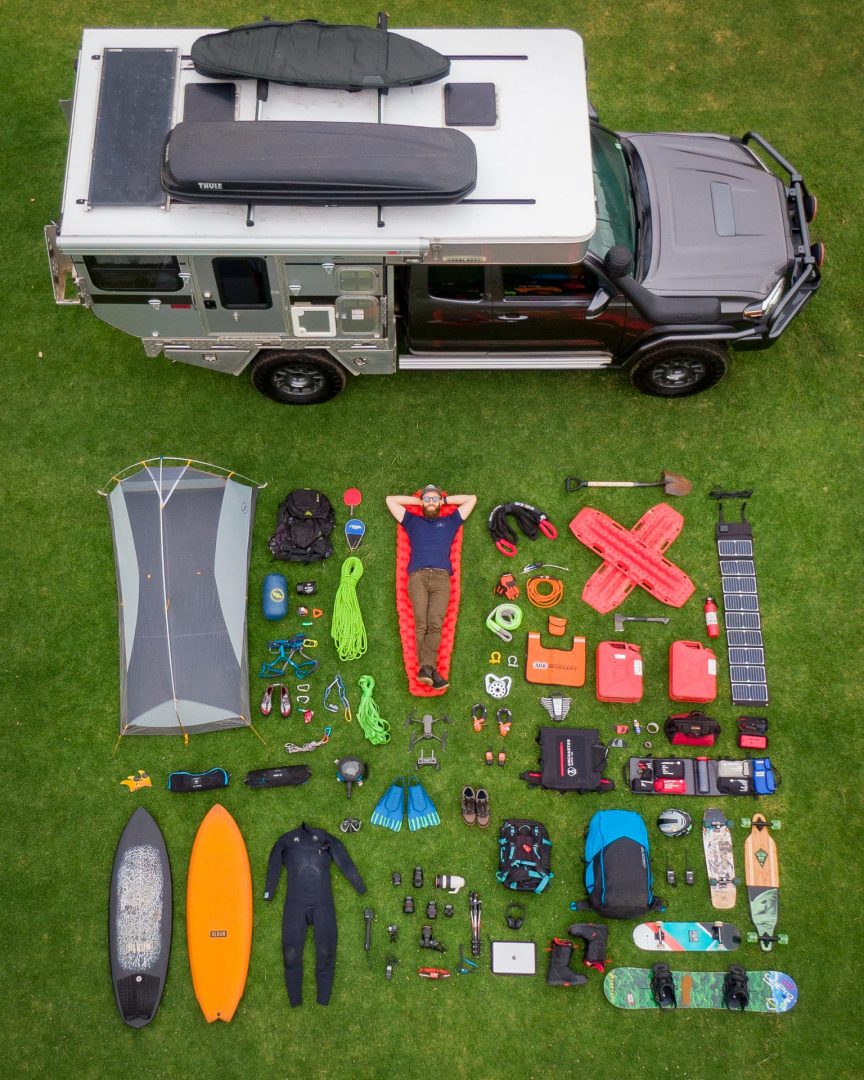
it provides peace of mind and can prove helpful in case anything happens, such as getting stuck at a campsite longer than anticipated due to rain, mud, or weather. Here are a few go-to items to pack to stay safe while solo camping:
- Water filter
- Camp stove
- Emergency GPS beacon
- Camping knife
- Pepper spray/bear spray
- Bug spray
- Sunscreen
- Headlamp
- Topographic map (downloaded on your phone)
- First Aid Kit
- Traction mats
5. Trust Your Instincts
One of the most important rules for staying safe while camping alone is trusting your instincts. If something feels wrong, it’s best to seek an alternative plan. If you had planned to boondock in the forest only to realize you don’t have service, don’t be afraid to head back to town if it makes you feel uneasy. Solo camping is no fun if you’re on edge, so sometimes it’s best to give up the desolate campsite with a scenic view for a sound night’s rest somewhere else.
6. Have an Emergency Plan
You can never be too prepared when camping alone. Most solo campers never have a major incident, but that doesn’t mean you should assume a flawless camping trip each time. There are three primary incidents to plan for:
- Medical emergency
- Weather emergency
- Safety emergency
If you are out of service and an emergency occurs, an emergency GPS locator beacon will be the most vital instrument to help. Before you set out on your camping trip, check to ensure the beacon is working and that you know how to call for help in an emergency. At night, keep the beacon close for quick access.
7. Lock Your Door & Store Away Food
If you are sleeping in a tent, ensure your car is locked, windows are rolled up, and all food is stored inside. Stash all food inside the bear-proof storage if at a campground with bear canisters. If camping in your Four Wheel Camper, lock your door to add an extra layer of safety. All Four Wheel Camper models, including Project M, can be locked and secured.
If you plan to camp solo often and are currently doing so with a tent, it might be a good idea to upgrade your setup so you can sleep inside with locked doors. There are many ways to do this – from creating a sleeping area in the back of an SUV to purchasing a truck camper solution, such as the Hawk or Project M from our factory.
Related News
-
Four Wheel Campers Hosts Third Annual Volunteer Event in Southern Arizona
In March 2024, Four Wheel Campers returned to the Sonoran Desert for our third annual volunteer event with Friends of Buenos ...
Read More -
Best Places to Stargaze in the United States
The moment your pop up truck camper is set up, the fire is lit, and the stars arrive, is one of the best feelings, especially ...
Read More -
The Perfect Campsite Challenge
Read the Full Article
Read More -
Lightweight Pop-Up Truck Campers: Hub-and-Spoke RVing with Boundless Adventures
Read the Full Article
Read More -
8 Breweries You Can Camp At With Your Four Wheel Camper
There’s nothing like a cold brew after a long day of travel. Better yet, there is nothing better than a cold hard brew at a ...
Read More -
Veteran and his Artistic, Off-Grid Lifestyle
We know our customers are special. Four Wheel Camper customers not only appreciate quality, efficiency, and great ...
Read More -
FWC Customer Pens Emotional Tribute
We know our customers are special. Four Wheel Camper customers not only appreciate quality, efficiency, and great ...
Read More -
7 Tips for Living on The Road Full Time From Industry Experts
Sometimes it’s the little details that get overlooked when prepping to live on the road full-time in your truck camper rig or ...
Read More -
Ski Resorts Where You Can Winter Camp in the Parking Lot
Embarking on a winter camping adventure offers unparalleled satisfaction, especially when you wake up snug and on-site in ...
Read More -
A Magruder Corridor Trail Adventure
Read the Full Article
Read More -
Get North – Overlanding In The Canadian Rockies
Read the Full Article
Read More -
Baja Road Trip Guide + Itinerary: What to Know Before You Go
Embarking on a Baja road trip is a dream come true for adventurers, especially those in our truck camper community! It’s a ...
Read More

